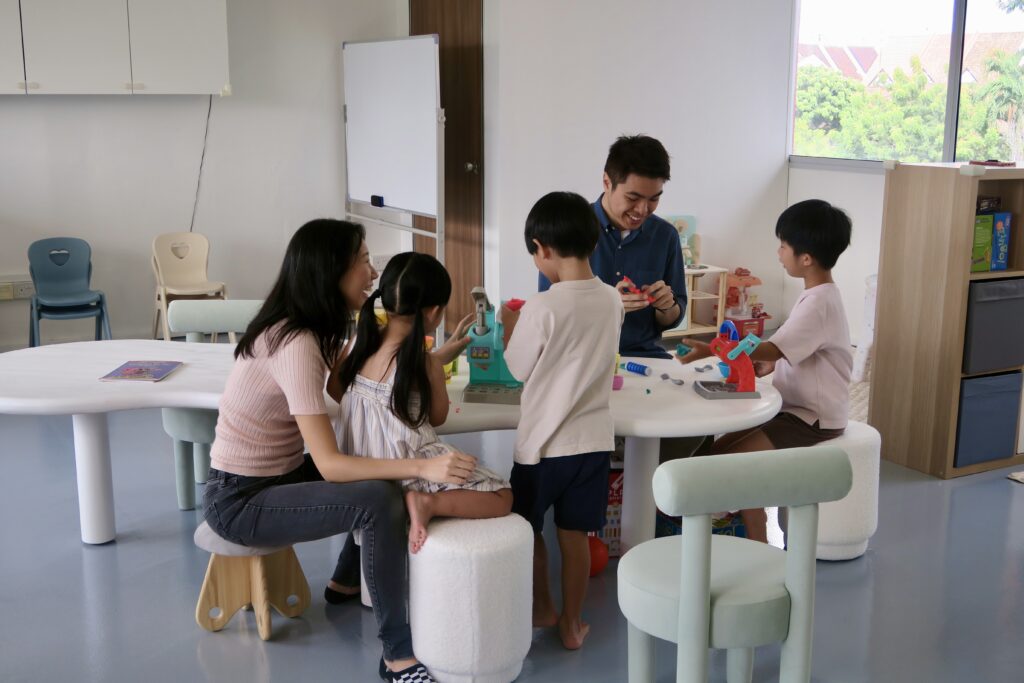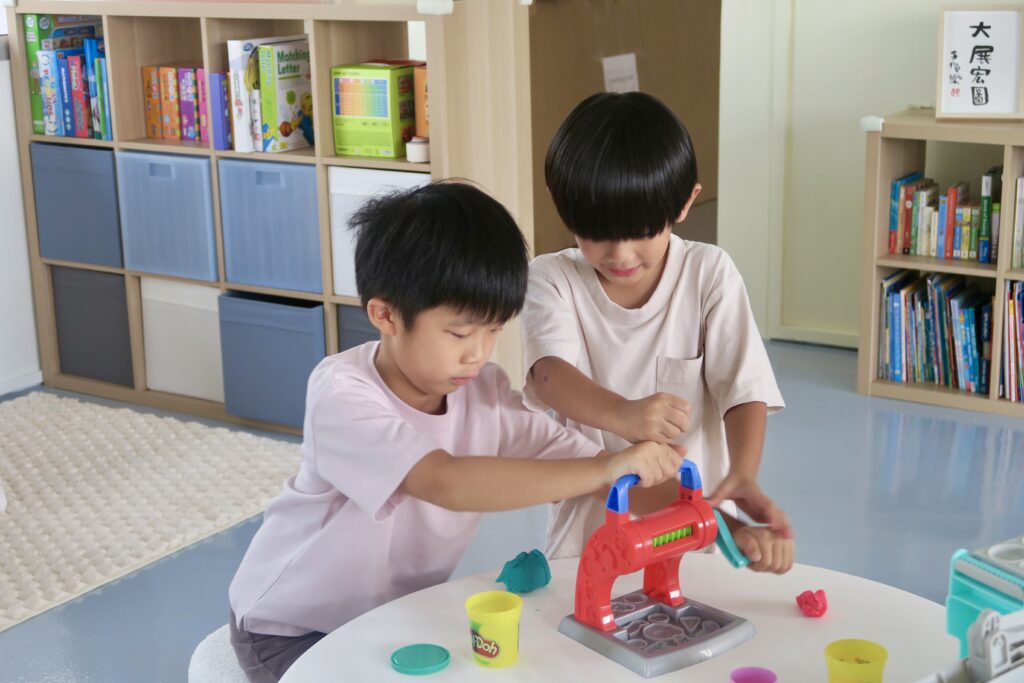
Our School Readiness Programme focuses on learning to learn skills, sometimes referred to as pre-attentive or foundational attending skills. These are the foundations children need in order to learn independently in a classroom or in other group settings.
These skills include:
This may take the form of an observation arranged in the school setting, or a structured screening session at our center. Both approaches help us establish a baseline and identify areas of strengths and challenges.
Your child participates in a mock class so we can identify the learning to learn skills challenges or set specific targets such as whole body listening, tablework stamina, or transitions.
Placement into the most suitable track which may include one to one, small group readiness, or a hybrid of both.
Parents learn to maintain progress at home. Teachers receive simple strategies that fit into existing class routines.
In some cases, our therapists provide in-class support to generalise skills into a real-life school setting. This is called school shadowing and is designed to be temporary, with fading planned from the start.
We may also recommend school mapping strategies such as placing the child at the front of the classroom or using a visual schedule on their desk, ensuring the environment supports their focus and independence.
By targeting learning to learn skills, the programme helps your child:
For parents and schools:
Our School Readiness Programme stands out because it is fully individualised rather than a one-size-fits-all package.
From the assessment of your child’s skills, the programme is then tailored to your child’s specific needs and goals. Some children may benefit from intensive 1:1 sessions, while others who already have the necessary foundations may join small group settings to build social and classroom skills.
Frequency, duration, and transition plans are not fixed but recommended by our therapists based on age, goals, and progress. This flexible approach ensures that every child receives the right level of support and that the programme naturally fades as they gain the skills and confidence needed for school.
School readiness is relevant from preschool onwards, as the skills required evolve with each stage of education. Our programme adapts to the environmental needs and expectations of your child’s school.
By tailoring goals to both the child’s developmental profile and the specific requirements of their school environment, we ensure that learning to learn skills are always practical, relevant, and transferable.

Your child may benefit if you notice:
Disclaimer: This article is for informational purposes only and should not replace professional medical advice. If you have concerns about your child’s development, please consult with a qualified healthcare professional for proper assessment and guidance.